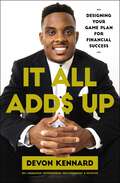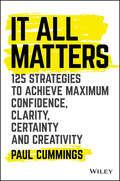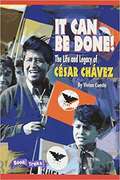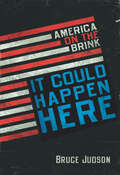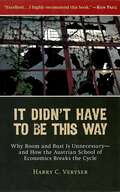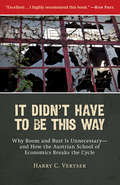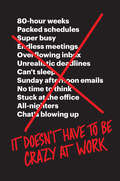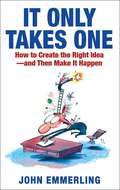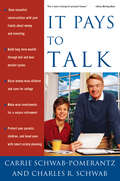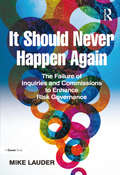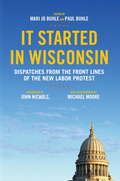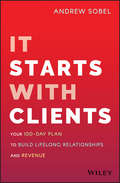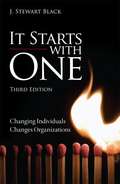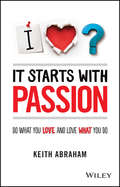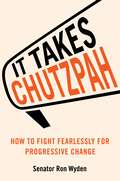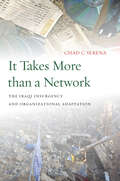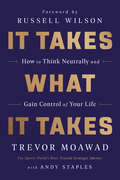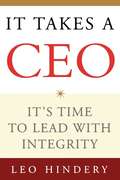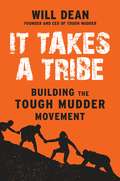- Table View
- List View
Istituto Clinico Humanitas (A)
by Gary P. Pisano Richard Bohmer Ning TangIstituto Clinico Humanitas is a newly built private hospital, south of Milan, Italy, that has attained unusual profitability while treating public system patients. The hospital was built and is managed by Techosp, a subsidiary of Techint, a global engineering and consulting firm. Techosp created a design and management system that emphasizes optimizing patient throughput and utilization of all of the hospital's facilities. Physicians are all fully employed and have a significant financial incentive to maximize efficiency. The executive team is now considering whether to affiliate with the University of Milan medical school and, in effect, become Italy's first private academic medical center. The general manager must consider the effect of this affiliation on the hospital's performance.
It All Adds Up: Designing Your Game Plan for Financial Success
by Devon KennardGain access to the ultimate playbook to help you win at your financial game.Money is a game of survival, and you can&’t get ahead with the outdated playbook of the American Dream. Don&’t let rising debt, stagnant wages, and increased inflation make it impossible to create financial stability. Create investment opportunities to build lasting wealth, and design the lifestyle of financial freedom that you and your loved ones have always dreamed of.NFL linebacker, investor, and philanthropist Devon Kennard is winning the financial game off the field, with proven strategies to generate income that will support him and his family long after he is playing in the stadium. In this book, Devon provides clear guidance and practical tools to help you create your money success story. You will learn how to: Transform your passions into ideas that earn passive income.Get into the real estate game and learn different investment methods.Cultivate a positive, wealth-building mindset to overcome financial fears and withstand setbacks.Network and create your team to help you reach your money goals.Include philanthropy and charitable works as part of your wealth legacy. At last, you have the ultimate game plan to create a version of the American Dream that works on your terms and builds lasting wealth for you and your family.
It All Matters: 125 Strategies to Achieve Maximum Confidence, Clarity, Certainty, and Creativity
by Paul CummingsThe all-encompassing framework for achieving the life of your dreams It All Matters presents a framework for the rest of your life. What are those dreams you would only dare to dream if there was no possibility of failure? How can you live a life of real intention and purpose instead of duty and obligation? This book answers these questions and more. Everyone has the capacity to author their own destiny; it's not our circumstances that shape our lives, it's our response to those circumstances that either propels us to great heights or keeps us stuck in the mud. Here, author Paul Cummings shares one of the most comprehensive goal setting systems ever put into print. Based on the key U.B.U. process—Understand who you are, Be true to yourself, and always be Unique—this framework gives you the power to transform your life. Through a fast-moving series of engaging stories, you'll learn how to question yourself to greatness as you begin to think in bigger and more positive terms. Professionals from across the globe have implemented this framework to achieve what they truly wanted out of life—isn't it your turn? This enlightening guide teaches you the revolutionary strategies that can help you make big things happen. Dig deep to find your real dreams, and set a plan to achieve them Discover the core principles the form the foundation for success Learn the art of self-questioning as a motivational tool Implement a comprehensive, proven system for getting what you want You are one great question away from everything you ardently desire at all times. Are you ready to take the leap? It All Matters shifts your perspective to let you see the shining path ahead.
It All Starts with a Sense of Urgency: Laying the Groundwork for Change
by John P. KotterComplacency is a serious problem, for organizations, nations, and individuals, yet we underestimate its power and its prevalence. In a fast-moving and changing world, contentment with the status quo can create disaster. This chapter describes why real urgency is an essential asset that must be created and recreated, and discusses the consequences of insufficient urgency.
It All Turns on Affection
by Wendell BerryThe book is on Wendell Berry's greatest speech during The Jefferson Lecture. It includes a small handful of other recent essays and a wonderful conversation between Mr. Berry, his wife Tanya Berry, and the head of the National Endowment of the Humanities Jim Leech, which took place just after the award was announced. The result offers a wonderful continuation of the long conversation Berry has had with his readers over many years and as well as a fine introduction to his life and work.
It Can be Done!: The Life and Legacy of Cesar Chavez
by Vivian CuestaStudents will enjoy reading these readers that reinforce topics, follow national Social Studies study for grades K-6. Each reader supports the learning taught in the classroom and motivates students to read more about a topic.
It Could Happen Here: America on the Brink
by Bruce JudsonThe severe economic downturn has been blamed on many things: deregulation, derivatives, greedy borrowers, negligent lenders. But could there be a deeper problem that is so severe, so long-lasting, and so dangerous that it makes these problems look like minor swerves in the road? Could we be facing an existential challenge to the promise of America, and to our system of government? Inequality in America has reached historical highs. Throughout human history, this level of disparity has proven intolerable, almost always leading to political upheaval. Though many believe that America will never face a second revolution, that our politics are stable, in It Could Happen Here, Yale School of Management senior faculty fellow Bruce Judson makes the case that revolution is a real possibility here, driven by a thirty-year, unprecedented rise of inequality through six presidencies, three Fed chairmen, three recessions, and many years of expansion. The last time inequality rivaled current levels was in 1928, just before the Crash and the Great Depression. Today we are in worse shape, divided into a tiny plutocracy of super-rich, on the one hand, and a fragile, indebted, unprotected "former middle class" on the other. As Judson shows, revolutions can occur suddenly, as happened with the Soviet Union's 1991 dissolution, and America today exhibits the central precursors to a collapse—extreme economic inequality and an increasingly impoverished middle class. He makes the most disturbing case yet for why our economics are leading us inevitably toward a devastating crisis.When Franklin Roosevelt faced a similar situa-tion, he was saved by World War II. This time, the conflict may be at home, not abroad.
It Didn't Have to Be This Way: Why Boom and Bust Is Unnecessary—and How the Austrian School of Economics Breaks the Cycle
by Harry Veryser"Excellent . . . I highly recommend this book." —RON PAUL Why is the boom-and-bust cycle so persistent? Why did economists fail to predict the economic meltdown that began in 2007—or to pull us out of the crisis more quickly? And how can we prevent future calamities? Mainstream economics has no adequate answers for these pressing questions. To understand how we got here, and how we can ensure prosperity, we must turn to an alternative to the dominant approach: the Austrian School of economics. Unfortunately, few people have even a vague understanding of the Austrian School, despite the prominence of leading figures such as Nobel Prize winner F. A. Hayek, author of The Road to Serfdom. Harry C. Veryser corrects that problem in this powerful and eye-opening book. In presenting the Austrian School&’s perspective, he reveals why the boom-and-bust cycle is unnatural and unnecessary. Veryser tells the fascinating (but frightening) story of how our modern economic condition developed. The most recent recession, far from being an isolated incident, was part of a larger cycle that has been the scourge of the West for a century—a cycle rooted in government manipulation of markets and currency. The lesson is clear: the devastation of the recent economic crisis—and of stagflation in the 1970s, and of the Great Depression in the 1930s—could have been avoided. It didn&’t have to be this way. Too long unappreciated, the Austrian School of economics reveals the crucial conditions for a successful economy and points the way to a free, prosperous, and humane society.
It Didn’t Have to Be This Way: Why Boom and Bust Is Unnecessary—and How the Austrian School of Economics Breaks the Cycle
by Harry C. Veryser"Excellent . . . I highly recommend this book." --RON PAULWhy is the boom-and-bust cycle so persistent? Why did economists fail to predict the economic meltdown that began in 2007--or to pull us out of the crisis more quickly? And how can we prevent future calamities?Mainstream economics has no adequate answers for these pressing questions. To understand how we got here, and how we can ensure prosperity, we must turn to an alternative to the dominant approach: the Austrian School of economics.Unfortunately, few people have even a vague understanding of the Austrian School, despite the prominence of leading figures such as Nobel Prize winner F. A. Hayek, author of The Road to Serfdom. Harry C. Veryser corrects that problem in this powerful and eye-opening book. In presenting the Austrian School's perspective, he reveals why the boom-and-bust cycle is unnatural and unnecessary.Veryser tells the fascinating (but frightening) story of how our modern economic condition developed. The most recent recession, far from being an isolated incident, was part of a larger cycle that has been the scourge of the West for a century--a cycle rooted in government manipulation of markets and currency. The lesson is clear: the devastation of the recent economic crisis--and of stagflation in the 1970s, and of the Great Depression in the 1930s--could have been avoided. It didn't have to be this way.Too long unappreciated, the Austrian School of economics reveals the crucial conditions for a successful economy and points the way to a free, prosperous, and humane society.
It Doesn't Have to Be Crazy at Work
by Jason Fried David Heinemeier HanssonIn this timely manifesto, the authors of the New York Times bestseller Rework broadly reject the prevailing notion that long hours, aggressive hustle, and "whatever it takes" are required to run a successful business today.In Rework, Jason Fried and David Heinemeier Hansson introduced a new path to working effectively. Now, they build on their message with a bold, iconoclastic strategy for creating the ideal company culture—what they call "the calm company." Their approach directly attack the chaos, anxiety, and stress that plagues millions of workplaces and hampers billions of workers every day.Long hours, an excessive workload, and a lack of sleep have become a badge of honor for modern professionals. But it should be a mark of stupidity, the authors argue. Sadly, this isn’t just a problem for large organizations—individuals, contractors, and solopreneurs are burning themselves out the same way. The answer to better productivity isn’t more hours—it’s less waste and fewer things that induce distraction and persistent stress.It’s time to stop celebrating Crazy, and start celebrating Calm, Fried and Hansson assert.Fried and Hansson have the proof to back up their argument. "Calm" has been the cornerstone of their company’s culture since Basecamp began twenty years ago. Destined to become the management guide for the next generation, It Doesn't Have to Be Crazy at Work is a practical and inspiring distillation of their insights and experiences. It isn’t a book telling you what to do. It’s a book showing you what they’ve done—and how any manager or executive no matter the industry or size of the company, can do it too.
It Only Takes One: How to Create the Right Idea--and Then Make It Happen
by John Emmerling"A lively and informative account of the creative process and how it works by someone who obviously knows." --George Plimpton, editor of The Paris Review "Finally, a GPS for finding your great ideas." --Mike Slosberg, cofounder of DigitasThe ability to turn a good idea into a great reality is a vital ingredient in achieving success. In It Only Takes One, John Emmerling offers an innovative, exciting, and proven method for taking your idea from a first faint flash to a fabulous finish. In this remarkable book, filled with exercises, charming cartoons, and quizzes, Emmerling explains the six steps of his incredible effective S.T.R.I.K.E. process. With chapters on salesmanship, enthusiasm, chutzpah, and much more, It Only Takes One provides you with the creative power you need to strike it big on the road to success.
It Pays to Talk
by Charles Schwab Carrie Schwab-PomerantzDoes your family talk about money?Do your kids understand your money values?Do you and your mate agree on how you spend and invest your money?Do you know if your parents are financially secure?These are the questions that Carrie Schwab-Pomerantz and her father, Charles Schwab, ask at the beginning of this invaluable family financial primer. The authors acknowledge that these are difficult questions but stress that families must grapple with them and come up with answers.Despite the proliferation of the financial news media, money remains a taboo subject in most families. Often the mere thought of talking about money with a family member causes enormous personal stress and confusion. But it doesn't have to be that way. The goal of this father-daughter collaboration is to bring solid financial advice into the context of family, where it can be explored, understood, and implemented to the benefit of everyone. The first essential thing that must happen is conversation, and It Pays to Talk is filled with advice about how to start talking. The authors are both working parents with a combined sixty-five years of knowledge and experience in the investment field. In this book they present a road map that every family can follow as they develop and implement an investment strategy and money-management plan.They begin by covering the fundamental principles that every investor needs to understand in order to succeed for the long term, and then they move on to cover joining forces in marriage; building your family's wealth regardless of market conditions; investing for your children's future and raising money-savvy kids; retirement planning; estate planning for you and your parents; and dealing with the unexpected--insurance, divorce, and investing a windfall. Throughout the book, the authors offer advice about how to start the often difficult conversations that lead to smart decision-making, as well as how to talk gently, intelligently, and respectfully about the many issues that define and shape our attitudes about money.It does pay to talk. This valuable and expert book will get you started and help you at every stage of your family's investment career. From the Hardcover edition.
It Regulatory Compliance In The Uk
by Alan CalderA key challenge for all IT management teams is to ensure that the organization avoids breaches of any criminal or civil law, as well as any statutory, regulatory or contractual obligations, and of any security requirements. Everyone in the IT organization (and outside it) needs to have an understanding of the legislation that applies to your organization. This Pocket Guide gives handy, easily-understood guidance on the key aspects of all the key regulations. This pocket guide includes coverage of key UK IT and information-related regulation, such as: * FSA Regulations * Basel2 * MiFID * Data Protection Act 1998 * Privacy and Electronic Communications Regulations 2003 * Freedom of Information Act 2000 * Computer Misuse Act 1990 (as updated in 2006) * Copyright, Designs and Patents Act 1998 * Electronic Communications Act 2000 * Regulation of Investigatory Powers Act 2000 * Human Rights Act 2000 * Disability Discrimination Act 1995 * Safeguarding of organizational resourcesEveryone in the organization should be aware of their specific responsibilities under these acts. The specific controls and individual responsibilities to meet these requirements should be documented and kept up-to-date, and should be linked to the list of all the data assets and processes in the organization, together with their ownership details. Foreign legislation may also be applicable to the operations of the organization; in particular, legislation passed in America (such as the Digital Millennium Copyright Act and others, discussed below) may affect the international operations of UK-based organizations or may be the basis on which a US-based organization takes action against a UK-based one.
It Should Never Happen Again: The Failure of Inquiries and Commissions to Enhance Risk Governance
by Mike LauderIn It Should Never Happen Again, Dr Mike Lauder questions the value of public inquiries. Every day, we hear about another inquiry being set up, or why the last one failed to deliver the hoped for outcomes. A great deal of time and taxpayers’ money is spent on inquiries and even more on implementing their recommendations, but the author suggests that those conducting inquiries might be considered (by their own test) criminally negligent in the way they do so and that it is no surprise that they do not lead to the learning they should. The focus of Mike Lauder’s research is the gaps between what is known, what knowledge is used by practitioners and those who judge them. He contends that the difference between the judicial perspective and that of practitioners who are judged by the inquiry process creates barriers that impede others from learning. Crucially, inquiry outcomes do not assist the leadership of organisations to improve risk governance. It Should Never Happen Again is based on research into high profile public inquiries and presidential commissions in the UK, the USA, Continental Europe, and elsewhere. Embracing issues ranging from terrorist attacks to pollution, fire and air disasters; criminal cases; banking and bribery scandals; and the state of public services, Mike Lauder contrasts the judicial perspective of those who inquire, the academic perspective of those who know and the practical perspective of those who are required to act, and offers new models for understanding risk and its governance.
It Started in Wisconsin
by Michael Moore John Nichols Paul Buhle Mari Jo Buhle Patrick BarrettIn the spring of 2011, Wisconsinites took to the streets in what became the largest and liveliest labor demonstrations in modern American history. Protesters in the Middle East sent greetings--and pizzas--to the thousands occupying the Capitol building in Madison, and 150,000 demonstrators converged on the city.In a year that has seen a revival of protest in America, here is a riveting account of the first great wave of grassroots resistance to the corporate restructuring of the Great Recession.It Started in Wisconsin includes eyewitness reports by striking teachers, students, and others (such as Wisconsin-born musician Tom Morello), as well as essays explaining Wisconsin's progressive legacy by acclaimed historians. The book lays bare the national corporate campaign that crafted Wisconsin's anti-union legislation and similar laws across the country, and it conveys the infectious esprit de corps that pervaded the protests with original pictures and comics.
It Starts With Clients: Your 100-Day Plan to Build Lifelong Relationships and Revenue
by Andrew SobelWorld-renowned client relationship authority shows you how to dramatically grow your business by mastering fourteen critical client development challenges Andrew Sobel, author of the international bestsellers Clients for Life and Power Questions, offers a proven,100-day plan for conquering 14 tough client development challenges and growing your client base in any market conditions. He’s encapsulated 25 years of unique research, including personal interviews with over 8000 top executives and successful rainmakers, into a practical roadmap for winning more new clients and growing your existing relationships. You’ll learn specific strategies to move confidently and predictably from a first meeting to a signed contract, and discover the agenda-setting techniques that create a steady stream of sole-source business. You’ll master the art of reframing client requests, leading to broader, higher-impact engagements. You’ll dramatically sharpen your ability to ask the powerful questions that can transform your client relationships. And, you’ll learn to develop advisory relationships with influential C-suite executives. Andrew illustrates each weekly challenge with real-life examples drawn from thousands of executive meetings. He shares success strategies from having grown and led three highly successful professional service businesses. Andrew has taught these strategies to over 50,000 professionals around the world, and they’re now available to you in this highly readable, portable masterclass. Whether you are early in your career and need a comprehensive guide to grow your client base from the ground up or are a seasoned practitioner who wants to accelerate your business growth, It Starts With Clients will take you to the next level.
It Starts With One: Changing Individuals Changes Organizations, Third Edition
by Hal Gregersen J. Stewart BlackAs many as 60% of organizational change initiatives fail. This means that many normally successful, motivated, and determined managers nonetheless struggle to lead change effectively. Most of those leadership failures share a common cause: managers mistakenly believe that organizational change is brought about by changing the organization. The truth is this: organizations change only as much or as fast as individuals change. And, to change individual behavior, you must first change the mental maps guiding that behavior. In It Starts with One, Third Edition, J. Stewart Black identifies the three critical "brain barriers" managers must break through in order to start, deepen, and sustain needed change. With new cases, examples, and tools for executing successful change initiatives, this edition dives even more deeply into the personal aspects of leading strategic change - as well as the unique challenges posed by driving change in global business environments. One step at a time, Black shows how to use their tools and techniques to bring solutions to life -- and transform change from a hope to a profitable reality.
It Starts With Passion
by Keith AbrahamHow to ignite your passion, live with purpose, and succeed in life and businessNo matter what you want to achieve in life, the secret to doing it is passion. For people to be happy, they need to find meaning in what they do and in the roles they play in their lives, careers, and communities. When we identify the personal passions that drive us, the byproduct is focus, satisfaction, and achievement. But it's not always easy to find our passions.In this book, Keith Abraham shows you how to ignite the passion in your life, as well as in the lives of your colleagues, employees, and associates. He includes in-depth research, easy-to-understand concepts, inspirational stories, and clear visual models to show you how to find out what's meaningful to you and pursue it with passion and energy. In the process, Abraham shows you what you can achieve when you align your purpose, passion, and personal goals.Offers effective advice on how to inspire passion and purpose in yourself, your colleagues, and your employeesWritten by a Certified Speaking Professional and bestselling author of self-help titlesIdeal for business owners and managers who want to inspire better performance in their teamsWhen you understand the "why" of what you're doing, the "how" becomes the easy part. This handy, enlightening guide shows you how to find your "why" so you can make your "how" happen.
It Takes Chutzpah: How to Fight Fearlessly for Progressive Change
by Ron WydenIn this inspirational call to action, a senior U.S. politician reveals how to accomplish goals with a combination of strong allies, persistence, and attention—that is, chutzpah.It Takes Chutzpah is an inspirational call to action by a senior U.S. politician, describing how Americans of all age groups, persuasions, and occupations can defy convention, chart new pathways for their communities, schools, at work and in life. US Senator Ron Wyden is widely praised for coming up with sensible-sounding ideas no one else had thought of and making the counter-intuitive political alliances that prove helpful in passing bills. In It Takes Chutzpah, he offers a progressive leader&’s manifesto for being a courageous warrior during turbulent times. &“Chutzpah&” is a Yiddish word that describes a trait that many Jews consider in-born. Ron explores chutzpah&’s long history and many interpretations and reclaims the word chutzpah for a new American generation, showing how it can be used for good to reclaim idealism and enact positive change. He shares &“Ron&’s 12 Rules of Chutzpah&” that enable any individual or group to achieve their objectives, including: 1. If you want to make change, you&’ve got to make noise. 2.In a world where everyone thinks and acts for the short-term, always play the long game. 3. Leading is coaching: Whether in legislation or in life, you&’ve got to bring people and ideas together around a shared goal. Ron identifies several key values—free speech, health care, reproductive rights, a clean environment, and reigning in Big Tech—and draws on his decades of public service to stress that preserving those values means that loud brashness and boldness will be needed now more than ever.
It Takes Money to Make Money: Your Investment Model--Why Raising Less Money Is Better--Seriously!
by Randy Komisar John MullinsFor most people who launch new ventures, it takes some up-front cash to open shop, and getting that cash is rarely easy. Investors worry about risk. Will the new venture make it in spite of the long odds? What is the potential return on their investment? As an entrepreneur, you are trying to figure out how to get started with as little investment as possible. Developing an investment model is a real challenge for most new ventures. But some companies--like Skype and Europe's Go airline, featured here--have built investment models that enabled them to generate surprising, even stunning, results on very modest investments. How can you do the same? In this chapter, the authors illustrate why leaner is generally better. They also look at some of the trade-offs involved in taking capital from external investors. This chapter was originally published as Chapter 7 of "Getting to Plan B: Breaking Through to a Better Business Model."
It Takes More than a Network: The Iraqi Insurgency and Organizational Adaptation
by Chad C. SerenaIt Takes More than a Network presents a structured investigation of the Iraqi insurgency's capacity for and conduct of organizational adaptation. In particular, it answers the question of why the Iraqi insurgency was seemingly so successful between 2003 and late 2006 and yet nearly totally collapsed by 2008. The book's main argument is that the Iraqi insurgency failed to achieve longer-term organizational goals because many of its organizational strengths were also its organizational weaknesses: these characteristics abetted and then corrupted the Iraqi insurgency's ability to adapt. The book further compares the organizational adaptation of the Iraqi insurgency with the organizational adaptation of the Afghan insurgency. This is done to refine the findings of the Iraq case and to present a more robust analysis of the adaptive cycles of two large and diverse covert networked insurgencies. The book finds that the Afghan insurgency, although still ongoing, has adapted more successfully than the Iraqi insurgency because it has been better able to leverage the strengths and counter the weaknesses of its chosen organizational form.
It Takes What It Takes: How to Think Neutrally and Gain Control of Your Life
by Trevor Moawad Andy StaplesForeword by Seattle Seahawks quarterback Russell WilsonFrom a top mental conditioning coach—"the world’s best brain trainer” (Sports Illustrated)—who has transformed the lives and careers of elite athletes, business leaders, and military personnel, battle-tested strategies that will give you tools to manage and overcome negativity and achieve any goal.He knows how to win. More, he knows the many ways-subtle, brutal, often self-inflicted-we lose. As the most trusted mental coach in the world of sports, Trevor Moawad has worked with many of the most dominant athletes and the savviest coaches. From Nick Saban and Kirby Smart to Russell Wilson, they all look to Moawad for help finding or keeping or regaining their competitive edge. (As do countless business leaders and members of special forces.) Now, at last, Moawad shares his unique philosophy with the general public. He lays out lessons he's derived from his greatest career successes as well as personal setbacks, the game-changing wisdom he's earned as the go-to whisperer for elite performers on fields of play and among men and women headed to the battlefield. Moawad's motivational approach is elegant but refreshingly simple: He replaces hardwired negativity, the kind of defeatist mindset that's nearly everybody's default, with what he calls "neutral thinking." His own special innovation, it's a nonjudgmental, nonreactive way of coolly assessing problems and analyzing crises, a mode of attack that offers luminous clarity and supreme calm in the critical moments before taking decisive action. Not only can neutral thinking raise your performance level-it can transform your overall life. And it all starts, Moawad says, with letting go. Past failures, past losses-let them go. "The past isn't predictive. If you can absorb and embrace that belief, everything changes. You'll instantly feel more calm. And the athlete-or employee or parent or spouse-who's more calm is also more aware, and more times than not ... will win."
It Takes a CEO
by Leo Hindery Jr.Should CEOs act as moral compasses for their companies? Leo Hindery thinks they should. If every CEO did so, then Enron, WorldCom, Adelphia, and Tyco would not have become poster children for greed. They would not have become corporate embarrassments -- living illustrations of all that can go wrong in the corner office. How did these once prestigious companies fall off the ethical cliff? How is it that reputations were destroyed, shareholders lost value, employees (in many cases) lost everything, and, in a few cases, entire companies disappeared? Everyone is pointing fingers, and the new widespread mistrust of public companies may turn out to be more damaging to America's economic future than the billions actually lost in the scandals. Now, one of America's most prominent corporate leaders illuminates the need for more integrity and less greed among executives. In a scathing examination of why leaders have lost their way, Leo Hindery speaks out on the role of the CEO. Does the corporate culture have to be driven by greed? Or can you do good and still make good in the big business world? Leo Hindery, the former CEO and President of companies such as AT&T Broadband, TCI, and the YES Network -- and currently Managing Partner of InterMedia Partners -- forcefully advocates approaching a business career as life's meaningful work, and not merely as a way to accumulate personal wealth. Both fiery and optimistic, Hindery calls upon his fellow executives to conduct themselves with the kind of integrity that used to be commonplace, but now seems all too rare. Holding his moral yardstick up to some of the worst transgressions in recent memory, Hindery tackles the toughest issues of the day head-on: Why should the ratio of average CEO pay to average employee pay today be 304:1 -- and in some cases, as high as 2,300:1? What does it mean when 80 percent of all viewed media content is owned by just 5 companies? If offshoring is good for the global economy, what needs to be done to make it fair? What should the role of the board of directors be, and whose job is it to take care of employees?With passion, insight, and humor, Hindery reinvigorates the code of business conduct. It Takes a CEO is a corporate handbook for our times -- not for how to get ahead, but for how to lead with integrity, grace, and heart.
It Takes a Tribe: Building the Tough Mudder Movement
by Will Dean“Who on earth wants to jump into ice baths and run through fire and wallow in mud on a Sunday afternoon, just for the hell of it?” my professors asked. My gut feeling was—plenty of people. Will Dean, founder of extreme obstacle course Tough Mudder, shares the thrilling inside story of how a scrappy startup grew into a movement whose millions of members feel like co-owners. He shows how other companies can embrace the Tough Mudder playbook by nurturing tribes of passionate fans while constantly experimenting with new risks. After five years as a British counterterrorism officer and two years at Harvard Business School, Dean was determined not to follow his classmates to Wall Street or Silicon Valley. Instead, he pursued his unique vision for an extreme obstacle course—a ten- to twelve-mile gauntlet pushing participants to their limits and helping them surpass those limits together. Instead of cutthroat competition, Tough Mudder would be about continual self-improvement and collective energy. It would be about the power of a tribe. Dean and his small team launched the first Tough Mudder event in May 2010, hosting 5,000 pioneers at a deserted ski resort in Pennsylvania. Just seven years later, more than 3 million people on four continents have participated at least once, and hundreds of thousands have done so repeatedly. More than 20,000 are so committed that they sport a Tough Mudder tattoo. Mudders prove the power of fierce and unshakable loyalty to one another and the challenge itself. Proudly sporting orange headbands and team uniforms, they’ll run through mud, climb steep walls, face electric shocks, and slide down the side of a mountain. The tougher the experience, the greater the satisfaction. It Takes a Tribe shows you how to embody the Tough Mudder spirit and capture the same magic. As a Tough Mudder slogan says, “When was the last time you did something for the first time?”

